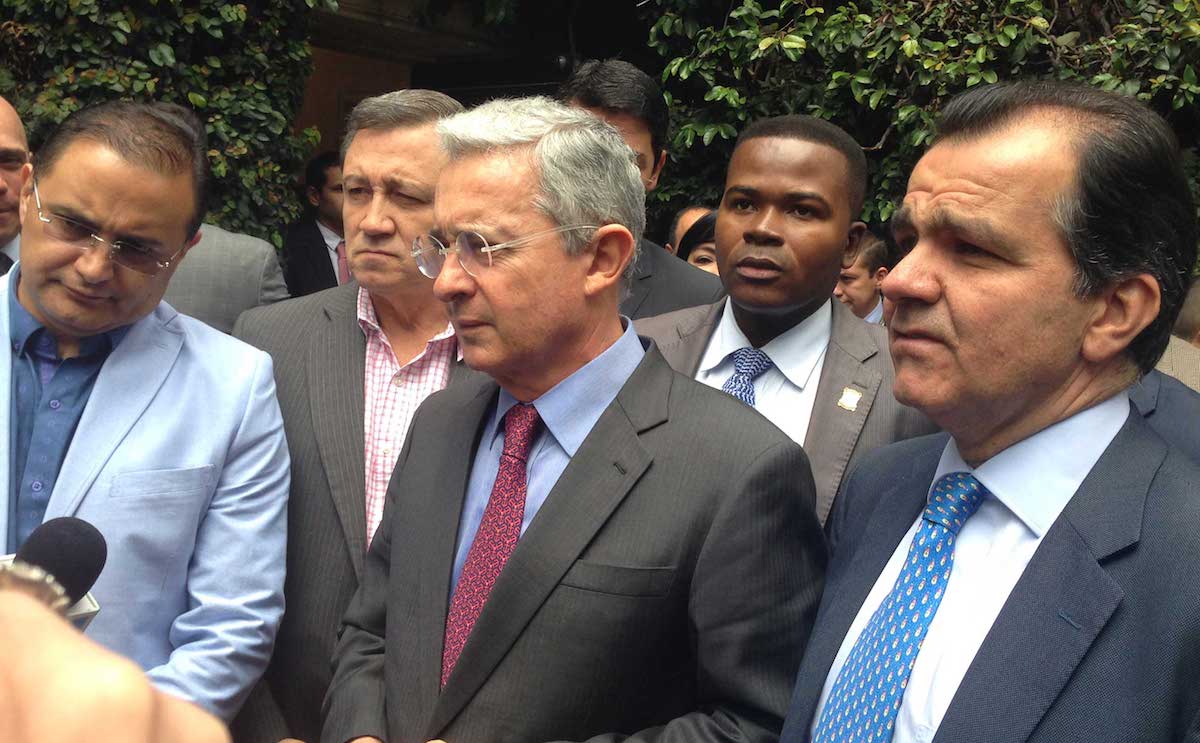In the recent years the controversy around blockchain and cryptocurrencies in Colombia has increased, with many, especially in government, showing resistance to these technologies. However, the untraditional, progressive, technologically savvy presidential candidate for the Libertarian Party, Juan Zubiría, yesterday became the first and only candidate to propose the implementation of cryptocurrencies and blockchain technologies in the area of public services, all part of his plan to reinvent Colombia with the help of technology.
One of the candidate’s reasons for implementing blockchain technology is the possibility of reintroducing a direct and complete democracy, alluding to the ancient Greeks, instead of a traditional representative democracy that is prone to tampering and corruption. The candidate explained that blockchain technology could be used as a way to maintain authentication, controls and records for property titles and contract registers, as well as for the subsidies and payments provided by the government that would ensure that the public budget would be minimally affected by corruption. Citizens would be able to review the usage of state resources in real time, a far cry from the bureaucracy that plagues Colombia today.
With respect to cryptocurrencies, Zubiría proposes the creation of a law project that would allow for direct competition, using cryptocurrencies along the Colombian peso. He claims that this would provide the people with lower transaction costs, instant international payments, safety and other elements that are not provided in the present monetary market.
Another of Zubiría’s policy proposals is to completely restructure the Colombian tax system and remove the Value-Added Tax (IVA), transitioning to a flat tax model to simplify payments and to benefit the low-income population. Colombia’s IVA, which currently stands at 19%, is added to all products and services in the country and is thought to disproportionately affect the country’s poorest citizens.
Zubiría indicated that the government should minimally regulate currency exchange operations to keep them competitive and successful, and only intervene when scams, theft and money laundering are involved. He added that these problems could be solved, or at least controlled, through blockchain technology.
Colombia’s current currency exchange system is plagued with problems and delays, including quotas that prevent companies from outside the country from bringing more than a certain amount of cash into Colombia without explicit approvals from the Banco de la República. All wires are also subject to strict revision, and transaction costs are high.
Zubiría believes that blockchain could be used along side the legalization of illegal drugs to keep registries of the production and commercialization of these substances, as well as the health registries of the addicts. This would eliminate the need for drug traffickers to market these substances within the black market and would eradicate the narcotrafficking violence that gripped the nation for more than four decades.
Finally, he summarized all the benefits that these digital technologies could bring, serving as an incorruptible registry and regulatory platform that could help revolutionize the way things work, and could be implemented quickly in an efficient and safe way. He exhorted the general population to support these policies, as blockchain and cryptocurrencies are the future, and here to stay.







